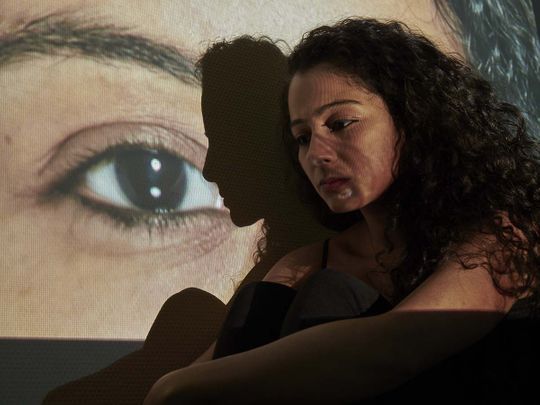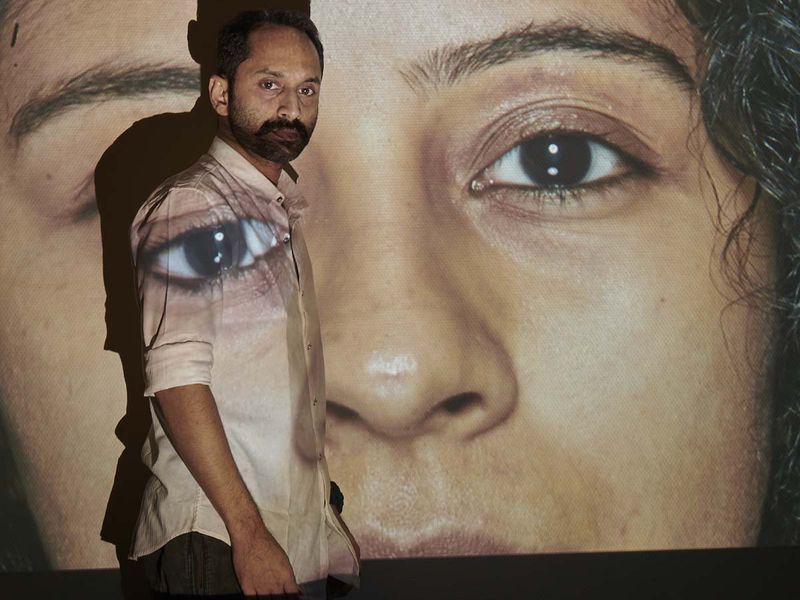
Dubai: India’s first ‘made-at-home’ film during the COVID-19 lockdown — a thriller in Malayalam, starring popular actor Fahadh Faasil — has the Indian Consulate in Dubai playing a cameo role.
“C U Soon,” which premiered on streaming platform Amazon Prime Video last week, has highlighted the role of the mission (and in turn its counterparts in various other countries) in rescuing migrant Indian women duped by recruitment agents.
See more
- IPL in UAE: Training teams show the right attitude for battle ahead
- Pictures: First Chinese public school opens in Dubai
- UAE aid to Pakistan, free COVID testing, UAE-Israel ties, US defiance, India parliament, Lebanon government, issues in Europe, here are the top news in pictures today
- IPL in UAE: Many hands make light work of IPL team training
“Yes, the consulate has a great role in the movie,” director–screenwriter of the 90-minute ‘screen-based’ movie, Mahesh Narayanan, told Gulf News over the phone from the south Indian state Kerala.
Mahesh, who has also edited the movie, had read several news reports about the Indian missions and local authorities busting gangs that recruit and abuse vulnerable women migrating abroad to earn a better livelihood for their families.
But what motivated him to highlight their plight in his experimental film during the COVID-19 pandemic was a video sent out by one such woman trapped in a Gulf country in 2015.
“One of my friends, Vinod, who works with the sound department of a news channel there [in that Gulf country] had forwarded the video to me,” said Mahesh.

“The girl was in a bad state. She had left the bathroom shower on and was appealing for help from her family in a muffled voice,” he recollected.
The disturbing video haunted Mahesh for days, he said. “I didn’t know if the video was even received by her family. But later my friend said she was rescued and sent home.”
Since the entire film was shot in four apartments and in a hotel in Kochi due to the COVID-19 restrictions, Mahesh had to use stock footage of the Indian Consulate.
Real life stories
Sheltering and repatriating distressed Indian women is a key community welfare activity of the consulate in real life.
Till date this year, the mission has repatriated 112 such women, Neeraj Agrawal, consul for Press, Information and Culture told Gulf News on Wednesday.
“More than 80 of them were given shelter by the consulate,” he said.
Two of them were repatriated this week.
E. Rani from Hyderabad and S. Kaur from Amritsar were brought to the UAE by illegal agents on false promises of better job opportunities, the mission said on Twitter while announcing its assistance in repatriating them.
During the pandemic, the mission repatriated 11 other women who complained of physical abuse after being forced into work in a dance bar in Fujairah.
Last year, 317 women in distress had sought assistance from the mission.
How they are helped
The mission runs a separate helpline number 050-4559594 for women, especially housemaids, in distress and gives shelter to those who seek help.
It provides food and accommodation and meets the expenses for their air ticket, document cancellation processes and provides support by issuing emergency certificates. Also known as out-pass, an emergency certificate is a one-way travel document to facilitate the return of Indians without a valid passport.
The Indian Community Welfare Fund (ICWF), which is primarily funded by the service fee paid by Indian expats for various consular services, is used for meeting their expenses.
In 2019, the Indian Consulate spent over Rs3.5million for providing food, accommodation and transportation, excluding air tickets, for aiding distressed women.
How they can be saved
A majority of these women either get cheated by agents or ill-treated or overworked by employers because they are not employed through legal channels, said Jitender Singh Negi, consul (labour and consular service).
Many of them are housemaids or beauticians. Occasionally, well-educated women have also fallen into the trap of agents who bring them over on visit visas with the promise to change them to employment visas after arrival.
Negi said the mission has not had cases of housemaids running away from employers if they are recruited through India’s online recruitment portal e-Migrate.
“We have always been encouraging employers to recruit housemaids through the e-Migrate system. We have also been conducting awareness programmes about the dangers of coming on visit visas for jobs,” said Agrawal.
The officials said the mission reports Indian agents cheating female recruits and they have been prosecuted on several occasions.
They urged Indian women to verify the genuineness of their job offers through the missions or the Pravasi Bharatiya Sahayata Kendra.
Mahesh, meanwhile, hopes that his film can also help create awareness about the issue.
“Many women don’t know whether they are going to work as a maid or a housekeeper when they are promised some other job. We have seen several such stories in the media. I think many are apprehensive to approach the authorities when they are in trouble. Some fear if the missions or the police will be receptive. I hope the film does its bit in spreading awareness about these issues.”








